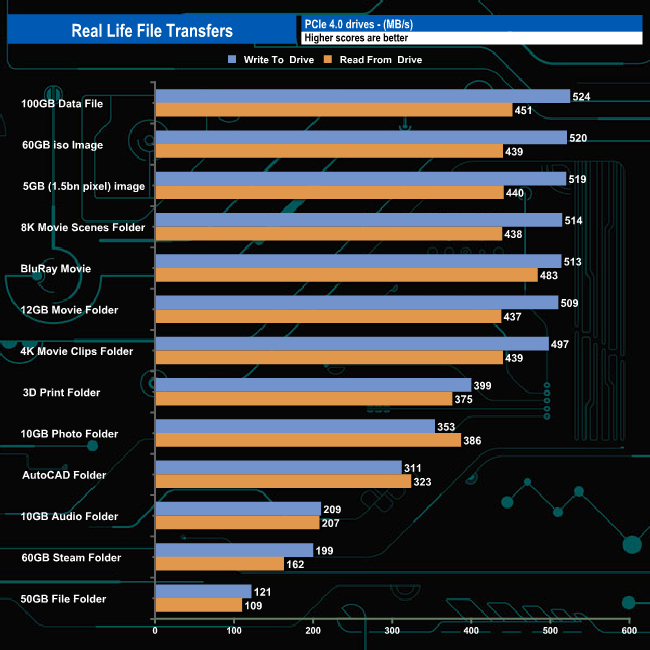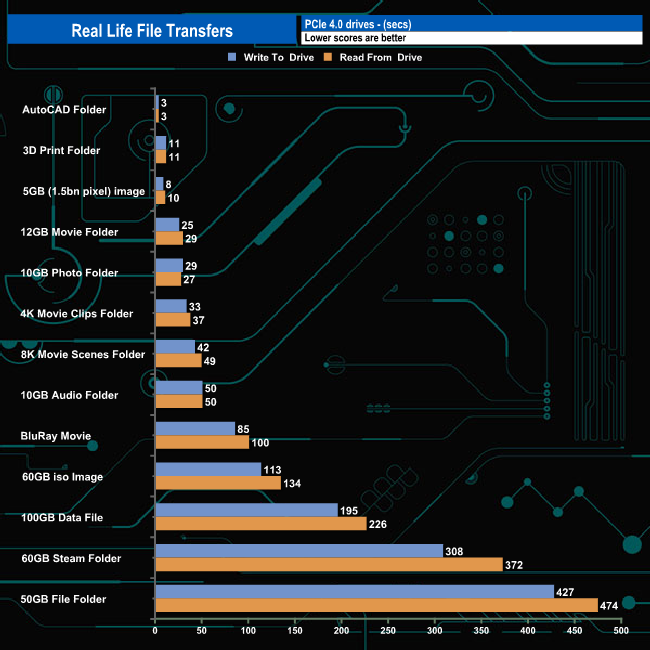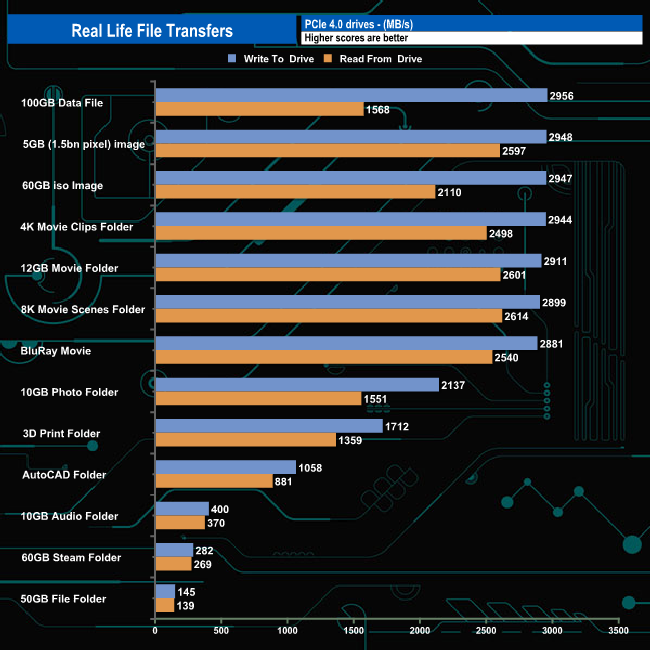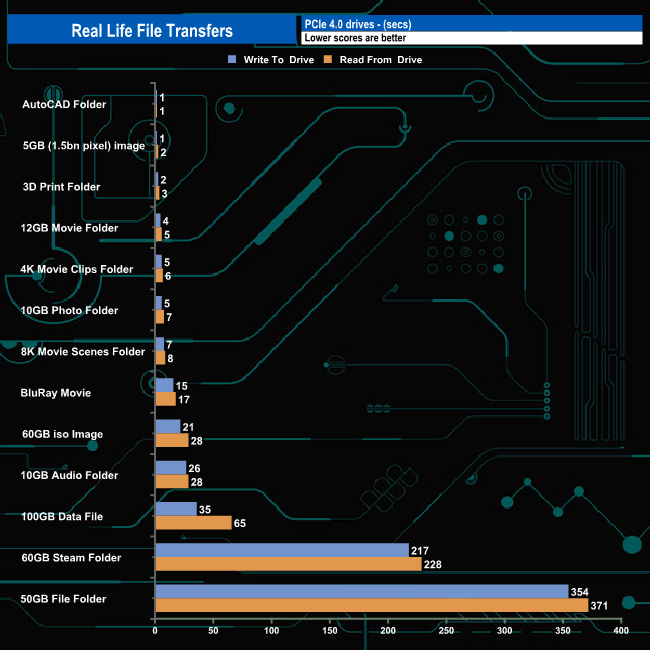To test real-life performance of a drive we use a mix of folder/file types and by using the FastCopy utility (which gives a time as well as MB/s result) we record the performance of drive reading from & writing to a 256GB Samsung SSD850 PRO.
We use the following file/folder types:
- 100GB data file.
- 60GB iso image.
- 60GB Steam folder – 29,521 files.
- 50GB File folder – 28,523 files.
- 21GB 8K Movie demos.
- 12GB Movie folder – 24 files (mix of Blu-ray and 4K files).
- 11GB 4K Raw Movie Clips (8 MP4V files).
- 10GB Photo folder – 621 files (mix of png, raw and jpeg images).
- 10GB Audio folder – 1,483 files (mix of mp3 and .flac files).
- 5GB (1.5bn pixel) photo.
- Blu-ray movie.
Sabrent’s Rocket 4 Plus dealt with our real-life file transfers without any problems, showing very good consistency of performance for both reads and writes when dealing with the larger file sizes, averaging 441MB/s when writing to the drive and 377MB/s when reading the data back. As usual, it's the small files in the Audio, Steam and File folders that cause the drive to slow down.
To get a measure of how much faster PCIe NVMe drives are than standard SATA SSDs we use the same files but transfer to and from a 2TB Kioxia Exceria Plus drive:
Switching over to the NVMe drive to transfer data to and from the 4TB Rocket 4 Plus saw transfer speeds for the large file transfers rocket and times taken drop dramatically. Seven of the transfers topped well over 2.5GB/s for writing to the drive with four just a shade under 3GB/s.
 KitGuru KitGuru.net – Tech News | Hardware News | Hardware Reviews | IOS | Mobile | Gaming | Graphics Cards
KitGuru KitGuru.net – Tech News | Hardware News | Hardware Reviews | IOS | Mobile | Gaming | Graphics Cards






